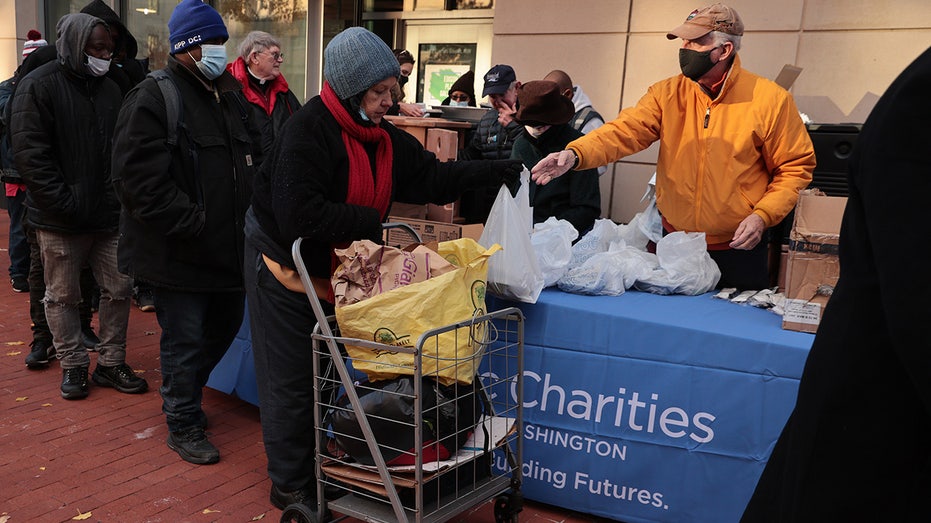Vatican bans investments in defense, weapons, embryonic stem cell research
Holy See to divest from defense, embryonic stem cell research, other industries contrary to Catholic teaching
The Catholic Church has announced long-term reforms of its investments in order to ensure its portfolio reflects the church's values and moral beliefs.
Only the latest in Pope Francis' overhaul of the institution's finances, the new regulations would severely crack down on revenue streams from industries and holdings deemed unethical.
The Holy See will no longer allow church funds to be invested in industries such as defense or weapons development. The church will also revise its portfolios to ensure no funds are connected to embryonic stem cell research or other medical technologies that violate its views on pro-life ethics.
"The new Investment Policy aims to ensure that investments are aimed at contributing to a more just and sustainable world; protecting the real value of the Holy See's net worth, generating a sufficient return to contribute sustainably to the financing of its activities," the Holy See wrote in an official statement. "And are aligned with the teachings of the Catholic Church, with specific exclusions of financial investments that contradict its fundamental principles, such as the sanctity of life or the dignity of the human being or the common good."
The new guidelines highlight a centuries-old conflict within the church on ethics of lending and borrowing money, as well as the use of investment for profit.

Pope Francis celebrates a mass for deceased prelates in St. Peter's Basilica, at the Vatican, Nov. 5, 2020. (AP Photo/Gregorio Borgia, Pool / AP Newsroom)
VATICAN SHUFFLES TOP CLERGY OF CATHOLIC CHURCH'S ETHICAL INVESTING PRACTICES
In early to pre-modern Christianity, the use of loans and debt to collect interest from a consumer was a sin referred to as "usury."
The definition of "usury" has changed dramatically over time in the face of worldwide capitalism and modern investment banking. Different denominations of Christianity have evaluated the topic differently over the years, with some still forbidding any money lending for profit.
On the ethics of its future investing practices, the Holy See wrote, "It is important that [investments] be aimed at financial activities of a productive nature, excluding those of a speculative nature, and above all that they be guided by the principle that the decision to invest in one place rather than another, in one productive sector rather than another, is always a moral and cultural choice."

Visitors admire the Sistine Chapel as the Vatican Museum reopened, in Rome on June 1, 2020. (AP Photo/Alessandra Tarantino / AP Newsroom)
GET FOX BUSINESS ON THE GO BY CLICKING HERE
The church's investments will now be overseen by an "Investment Committee" that will bear final responsibility for research and consultation into prospective investment fields.
Cardinal Kevin Farrell of the United States is assuming the position of chairman for the committee, heading a team of financial professionals hired from inside and outside the Catholic Church.

Byrne O'Brien and other Catholic Charities volunteers distribute pre-Thanksgiving meals at the Pepco Edison Gallery on Nov. 23, 2021, in Washington, D.C. (Chip Somodevilla/Getty Images / Getty Images)
"The new Investment Committee, established by Praedicate Evangelium, will carry out – through APSA – the appropriate consultations aimed at implementing the investment strategy, and will evaluate the suitability of the choices, with particular attention to the compliance of the investments made to the principles of the Social Doctrine of the Church, as well as the parameters of return and risk in accordance with the Investment Policy."
FORMER NETFLIX, IBM SOFTWARE ENGINEER TURNED TIKTOKER TALKS RETIRING AT 30
The announcement and rollout of the Holy See's updated investment regulations was entrusted to the prefect of the secretariat for the economy, Rev. Juan Antonio Guerrero Alves.
The Vatican bank was founded in 1942 by Pope Pius XII to manage assets destined for religious or charitable works. Located in a tower just inside the gates of Vatican City, it also manages the pension system for the Vatican's thousands of employees.




















